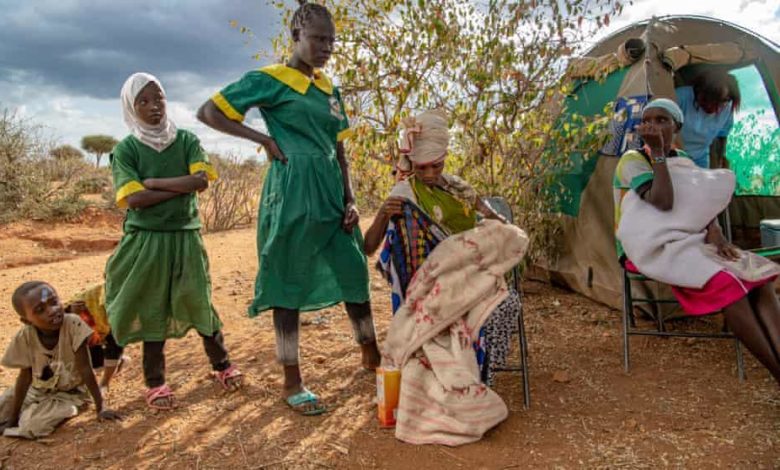Fertility myths put millions off contraception, UN report warns

Press/slma
More than half of pregnancies worldwide are unintended, with stigma and misinformation leading factors in lack of family planning, says UNFPA
Health workers from the Communities Health Africa Trust offer family planning advice to women in rural Mpala, Kenya
Global development is supported by
Bill and Melinda Gates Foundation
About this content
Lizzy Davies
Wed 30 Mar 2022 10.44 BST
Myths and misinformation surrounding the use of contraception are putting women off using modern family planning methods, the UN population fund has warned, as figures showed that nearly half of all pregnancies worldwide are unintended.
With more than 250 million women estimated to be not using effective contraception despite wanting to avoid getting pregnant, the UNFPA said that lack of access to family planning was no longer a leading reason for it not being taken up.
Instead, it said, while contraceptive use was increasing throughout the world, those women who were deliberately avoiding it were more likely to be doing so out of concerns about “side effects, myths, stigma and opposition from others”.
For many women, it stressed, taking contraception was complicated, with nearly a quarter (23%) unable to say no to sex, according to figures first reported in 2020. However, for others who are able to choose freely, “many myths and misperceptions persist and contribute to non-use”, the UN agency found.
In a survey of 60 respondents, published in UNFPA’s annual report on Wednesday, one woman from Ghana said she had heard that “contraceptives make people grow fat”. Several women from different countries, including the US, said they had been told that birth control pills could cause infertility.
A 43-year-old woman from Burkina Faso said: “We were told contraception makes you sterile.”
According to another woman, 31, from Sudan: “People believe it causes infertility, cancer; that it’s a foreign idea.” And an Algerian respondent, 44, had been told that: “Condoms should only be used for sex outside marriage, the pill makes you sterile, the IUD causes haemorrhages.”
Sahumani Secondary school in Nyanga, Zimbabwe, November 2020
‘Contraception divides opinion’: tackling taboos in Zimbabwe as teen pregnancies soar
Read more
According to data first published in 2020, nearly half of all pregnancies worldwide – about 121 million – are unintended, with more than 60% of those ending in abortion. An estimated 45% of all abortions are unsafe, the UNFPA says.
Speaking as the agency released its report, executive director, Natalia Kanem, said the number of unintended pregnancies was “staggering”.
“For the women affected, the most life-altering reproductive choice – whether or not to become pregnant – is no choice at all. By putting the power to make this most fundamental decision squarely in the hands of women and girls, societies can ensure that motherhood is an aspiration and not an inevitability.”
The report called for governments to put in place “comprehensive sexuality education” so that women and girls were able to obtain accurate information about their contraceptive options.
“Done properly, this education can combat myths and misperceptions, and it can promote communication, consent and respectful relationships. It can address gender and power and teach adolescents about confidential contraceptive care,” the report added.
… we have a small favour to ask. Millions are turning to the Guardian for open, independent, quality news every day, and readers in 180 countries around the world now support us financially.
We believe everyone deserves access to information that’s grounded in science and truth, and analysis rooted in authority and integrity. That’s why we made a different choice: to keep our reporting open for all readers, regardless of where they live or what they can afford to pay. This means more people can be better informed, united, and inspired to take meaningful action.
In these perilous times, a truth-seeking global news organisation like the Guardian is essential. We have no shareholders or billionaire owner, meaning our journalism is free from commercial and political influence – this makes us different. When it’s never been more important, our independence allows us to fearlessly investigate, challenge and expose those in power.
Source: The Guardian





